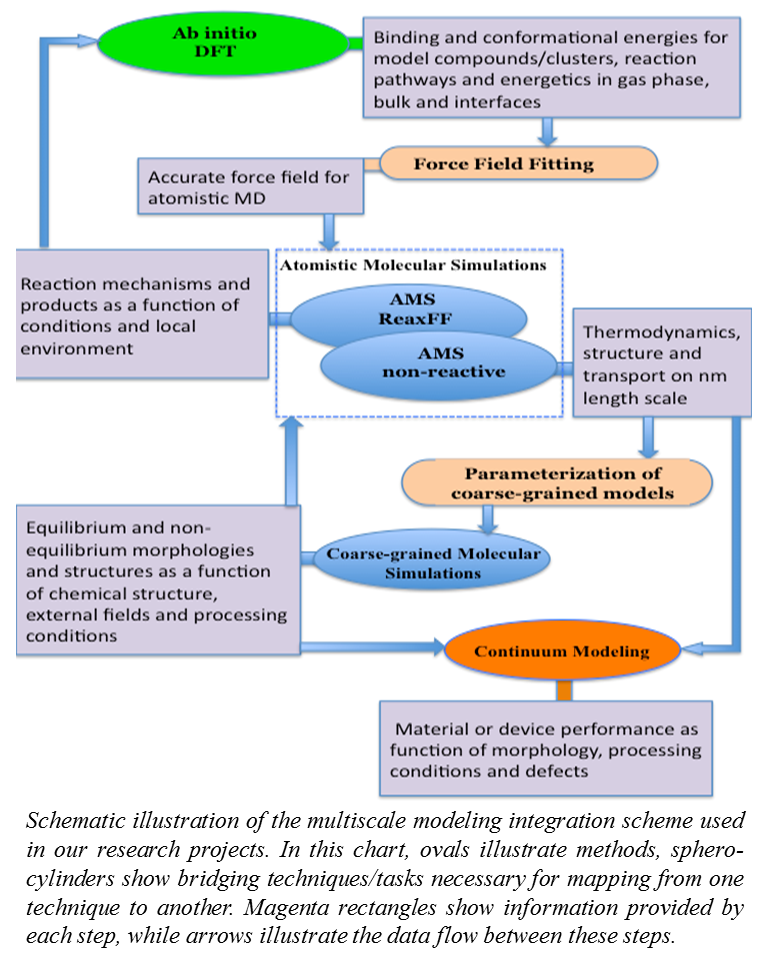Dmitry Bedrov
Associate Professor [CV]
Department of Materials Science & Engineering, University of Utah
Education:
Ph.D. University of Utah - Chemical Engineering
B.S. Odessa State Academy of Refrigeration - Thermophysics
Contact Information:
Phone: 801-585-3949
E-mail: d.bedrov@utah.edu
Office: 122 S. Central Campus Drive, Rm. 207, Salt Lake City, UT 84112

Research Interests
My research interest lies in the area of multiscale modeling of soft-condensed matter systems that exhibit complex, multiscale structure often arising from molecular and super-molecular self-assembly. The dependence of materials properties on a plethora of potentially adjustable parameters necessitates the use of multiscale simulations to provide badly needed fundamental understanding of the relevant interactions and to guide the design of new materials with desired properties. In my group we utilize ab initio quantum chemistry calculations, atomistic reactive and non-reactive molecular dynamics (MD) simulations, coarse-grained and mesoscale particle-based simulations to establish correlations between structural, conformational, thermodynamic, transport and mechanical properties on atomistic, molecular, mesoscopic and macroscopic scales. MD simulations using atomistically detailed models allow detail investigation of chemically realistic systems and provide an excellent basis for interaction/comparison with experimental techniques (e.g. NMR, X-ray, neutron scattering, dielectric spectroscopy, and rheology) while simulations using coarse-grained models allow fast exploration of the parameter space and provide qualitative dependencies of properties as a function of controlling parameters therefore creating a good basis for bridging with theory and continuum level modeling. In tight collaboration with applied mathematicians and computer scientists we continue to work on bringing the multiscale modeling approach to a qualitatively new level in accuracy and efficiency necessary to address complex systems and materials.
Over the last decade my research involved investigation of a broad range of soft-condensed matter systems, including polymer nanocomposites, polymer modified nanoparticles and surfaces, self-assembling biopolymers networks and gels, micellar solutions, polymers at interfaces and thin films, polymer solutions, melts and blends, liquid crystals, and energetic materials. Recently, a significant part of my research efforts has been refocused on materials for energy applications including lithium-ion batteries, supercapacitors and fuel cell membranes.
